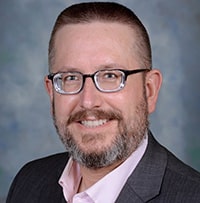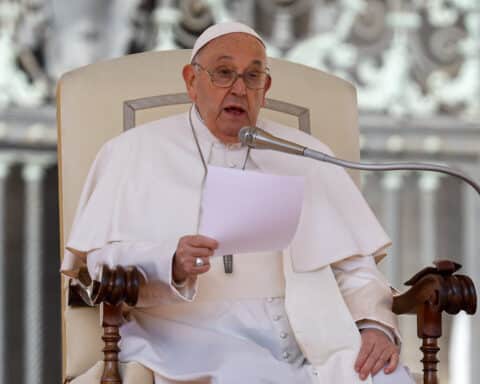
“It’s not my fault. I didn’t mean it to happen!”
“So how did it get broken?”
“Bobby took my Legos, and I was trying to get them back. And I tripped over the cord. So it’s not my fault!”
The world of childhood is full of unintended consequences. For much of a child’s life, the connection between his actions and the consequences that flow from them isn’t simply tenuous; it’s nonexistent. Even if he were to answer “no” to the obvious next question — “If you hadn’t been running, would the lamp be broken?” — there would be no guarantee that he would recognize his responsibility for breaking the lamp. He didn’t mean to do it, so it’s not his fault.
One of the hallmarks of moral maturity is recognizing the consequences — intended or not — of your actions and owning up to them. But in this day and age, we seem stuck in childhood — morally, at least — both individually and as a society.
“I thought if I didn’t get vaccinated, it would only affect me. I didn’t mean for anyone else to get sick and die.”
“The only way we could take out that al-Qaida leader was by drone. It’s not our fault that he always traveled with his wives and children. Their deaths are on him, not us.”
“We wanted a child of our own, and IVF was the only way to make that happen. Excess embryos are an unfortunate byproduct of the process.”
“We were just defending ourselves after the terrorist attacks of 9/11. No one could have known that, 20 years later, the war in Afghanistan would have cost us over $2 trillion and 3,000 American lives.”
That some did know, and predicted it two decades ago, is almost beside the point. The problem isn’t that we sometimes don’t foresee certain consequences — that may be nothing more than a failure of imagination — but the persistent belief that we are morally responsible only for those results of our actions that we did foresee and deliberately intended.
Too often, we read Christ’s words on the cross — “Father, forgive them, for they know not what they do” — as evidence that we bear no culpability at all for our actions taken in ignorance. But if there’s no culpability, there’s nothing to be forgiven, and thus no need for Christ to ask the Father to forgive us.
Humility consists in large part in the recognition that we don’t know everything; that our actions, therefore, will often have consequences that we didn’t intend, and that, despite not intending them, we are still responsible for those consequences. That’s where the cardinal virtue of prudence comes into play. The classic definition of prudence is “right reason applied to practice,” but that leaves out the moral dimension captured by Father John A. Hardon in his Modern Catholic Dictionary. Prudence, Father Hardon writes, is “Correct knowledge about things to be done or, more broadly, the knowledge of things that ought to be done and of things that ought to be avoided.” There are many reasons to avoid certain actions beyond the question of their morality in themselves, and one of the chief ones is the recognition that our understanding of the long-term consequences of those actions may be limited.
As with all of the cardinal virtues, Christians can grow in prudence through grace. Our participation in the sacraments, and our desire to cooperate in God’s will, can help us to judge more correctly what ought to be done and what ought to be avoided. And our recognition of our reliance on God’s grace can help us understand the limits of human action.
When we put on the mind of Christ, we can move forward with confidence and own the results of our actions. Because with God, there are no unintended consequences, and all that he intends works toward the good of his creation and the salvation of us all.
Scott P. Richert is publisher for OSV.



